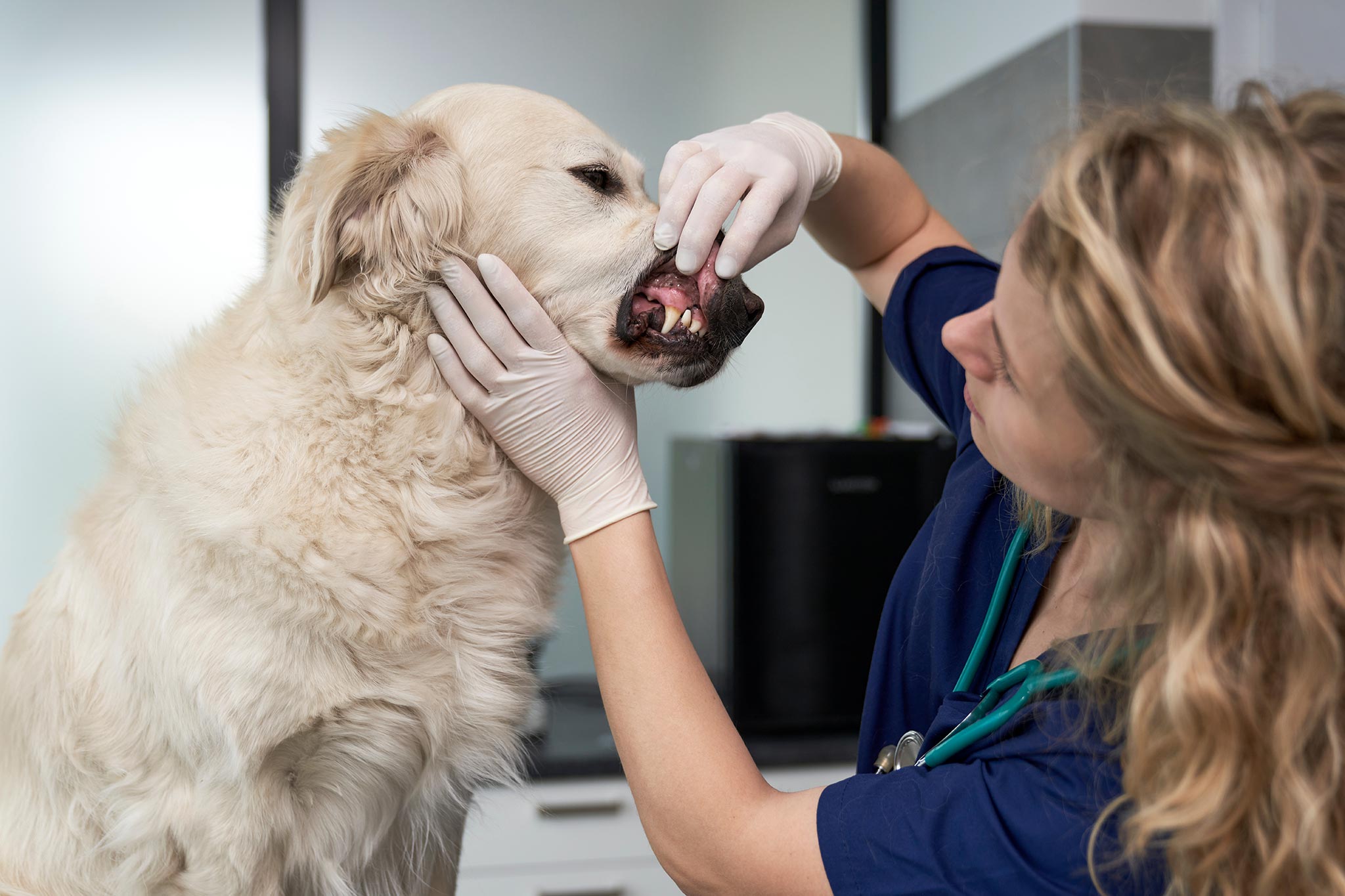How Many Teeth Do Dogs Have?
When we talk about taking care of our pets, we often think about their diet, exercise, and affection. But have you ever stopped to think about their dental health? Yes, we’re talking about dog teeth today. Understanding how many teeth dogs have, what types of teeth they possess, and how to care for them can make a big difference in their lives. If you’re curious or concerned about your dog’s dental health, we’re here to help. You can always get in touch with us at Riverstone Animal Hospital in Canton, GA, by calling (770) 479-7141 for more details or to schedule an appointment. Let’s dive into the world of dog teeth and discover the essentials of dental care for our canine companions.

A Peek Inside Your Dog’s Mouth
Dogs, just like humans, have baby teeth that fall out and are replaced by adult teeth. Puppies have 28 deciduous (baby) teeth, which they start to lose as they grow older to make room for their 42 adult teeth. This process is similar to humans losing their baby teeth and getting their permanent ones. These teeth include incisors, canines, premolars, and molars, each serving a unique purpose in helping your dog eat, play, and live healthily.
The Role of Each Type of Tooth
- Incisors are the small teeth at the front of the mouth, used by dogs to nibble and remove meat from bones.
- Canines are the sharp, pointed teeth that help dogs grasp and tear food.
- Premolars, located behind the canines, are used for chewing and grinding food.
- Molars are the teeth at the back of the mouth, used for grinding down food before swallowing.
Understanding these teeth and their functions can help us appreciate the complexity of our dogs’ mouths and the importance of keeping these teeth healthy.
The Importance of Dental Care
Just like people, dogs can suffer from dental issues like plaque buildup, gum disease, and tooth decay if their teeth are not properly cared for. This is why dental care is an essential part of overall health care for dogs. Regular brushing of your dog’s teeth can prevent the buildup of plaque and tartar, reducing the risk of dental diseases. Additionally, providing your dog with dental chews and toys can help clean their teeth and keep dental problems at bay.
Dental issues in dogs are not just about bad breath; they can lead to more serious health problems, including infections that can spread to major organs. Taking care of your dog’s teeth is about more than just their mouth; it’s about taking care of their entire body.
Scheduling Regular Dental Check-Ups
One of the best ways to ensure your dog’s teeth stay healthy is by scheduling regular dental check-ups with your veterinarian. At Riverstone Animal Hospital, we are equipped to perform dental exams, cleanings, and even surgeries if necessary. These check-ups allow us to catch any dental issues early on and address them before they become major problems.
During a dental check-up, we’ll carefully examine your dog’s teeth and gums for any signs of disease or decay. We might also recommend a professional cleaning, which is done under anesthesia to ensure a thorough cleaning without causing stress or pain to your dog.
Tips for At-Home Dental Care
In between veterinary visits, there are several things you can do at home to care for your dog’s teeth:
- Brushing Your Dog’s Teeth: This is the most effective way to remove plaque and prevent tartar buildup. There are toothbrushes and toothpaste designed specifically for dogs, and it’s a good idea to make brushing a regular part of your dog’s routine.
- Dental Chews and Toys: These products are designed to help clean your dog’s teeth as they chew. They can be a great supplement to regular brushing.
- Healthy Diet: Feeding your dog a balanced diet can also contribute to good dental health. Certain types of dog food are formulated to help reduce plaque and tartar buildup.
Caring for your dog’s teeth might seem like a small part of their overall health care, but it can have a big impact on their quality of life. Dental pain can make eating difficult and lead to more serious health issues down the line. By taking steps to care for your dog’s teeth, you’re helping to ensure they lead a happy, healthy life.
When to Call the Vet
If you notice any signs of dental issues in your dog, such as bad breath, difficulty eating, excessive drooling, or visible tartar buildup, it’s important to call your vet right away. These could be signs of dental disease that needs to be addressed. Remember, early detection and treatment are key to preventing more serious health problems.
At Riverstone Animal Hospital, we’re committed to helping you take the best possible care of your dog’s teeth. Whether you have questions about dental care, need to schedule a check-up, or are concerned about a potential dental issue, give us a call at (770) 479-7141. We’re here to support you and your dog every step of the way.
